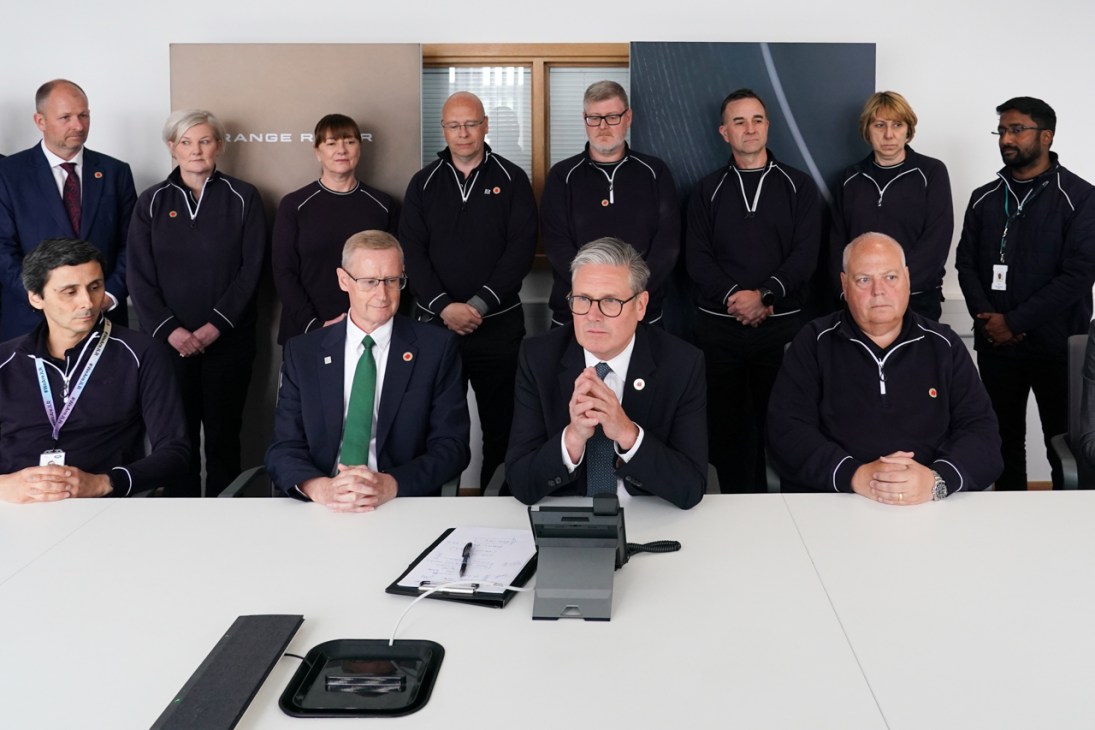The “special” relationship strikes back as Trump announces US-UK trade deal
UK prime minister Keir Starmer and US president Donald Trump have announced a “breakthrough” trade deal, the first since the latter leader triggered a global trade war.
UK prime minister Keir Starmer and US president Donald Trump have announced a “breakthrough” trade deal, the first since the latter leader triggered a global trade war.

To the extent that US president Donald Trump’s decision to launch a tariff war with the world made any sense – and the consensus among economists is that it did not – it was as a massive standover: to bully the world’s nations into seeking individual arrangements on terms more favourable to the US. This was certainly what Trump insinuated, repeatedly and coarsely boasting of grovelling entreaties from other countries. At one point he even claimed to have struck 200 trade deals. This would have been a remarkable accomplishment, given that the United Nations recognises a mere 195 countries, though perhaps Trump believed himself to be negotiating furiously with Ruritania, Freedonia, Lilliput, Legoland and the Duchy of Grand Fenwick.
We now know that at least one of Trump’s deals has been done – with the United Kingdom. Trump declared the agreement as “full and comprehensive” and “big and exciting”, though such claims do need to be adjusted for the president’s lifelong tendency towards the oversell. The agreement might prove little more than yet another iteration of a recurring motif of Trump’s life in politics: create problem, cease creating problem, claim credit as a problem solver.
For this is not really a trade deal, at least certainly not a “full and comprehensive” one. It is a reduction for some items of the 10 per cent tariff that was slapped on most UK imports on “Liberation Day” – and scales back the 25 per cent tariffs imposed on UK car and steel manufacturers. Possibly grasping for a British brand of which Americans will have heard, US secretary of commerce Howard Lutnick beamed that Rolls-Royce aeroplane engines will now be tariff-free. Somewhat ominously, Trump, who has a formidable record for changing his mind and/or abnegating agreements, stressed that the final details of the deal are as yet unwritten.
This being said, the optics are significant for the UK. Trump could have chosen any country or leader to be the first recipient of his munificent generosity and abundant reasonableness: president Xi Jinping of China, prime minister Shigeru Ishiba of Japan and the chief penguin of the Heard and MacDonald Islands are still languishing beneath a 10 per cent tariff. That Trump chose the UK is, at the very least, a solid diplomatic result; a reinforcement of the UK’s cherished idea that its relationship with the US is the “special” one.

For UK prime minister Keir Starmer, it is the second big trade-related deal in a week, after an agreement was concluded with India. Tariffs on certain goods were lowered in both directions. It’s excellent news for Indian enthusiasts of Scotch whisky, UK wearers of Indian textiles and, hopefully, for the companies that supply both. The UK government’s line is that the deal will eventually increase UK GDP by £4.8bn (€5.6bn). Whether or not this proves accurate, it seems mildly preposterous that India and the UK, respectively Earth’s fourth and sixth-biggest economies, with deep historical, cultural and familial ties, were doing such a small amount of business: India presently accounts for less than two per cent of the UK’s exports and imports.
The UK-India deal could be added to Trump’s list of inadvertent triumphs, along with his recent crucial contributions in helping to re-elect the Liberal Party in Canada and the Labor Party in Australia. The UK-India deal had been sputtering for three years: they would not be the only two countries who have recently been figuring out ways to help each other compensate for the US’s possible retreat into protectionist autarky. Starmer is also looking forward to signing a new “strategic partnership” with the EU in London on 19 May, with commitments to defence and trade. The diplomatic narrowing of an English Channel widened by Brexit has been another unintended consequence of Trump’s caprices.



